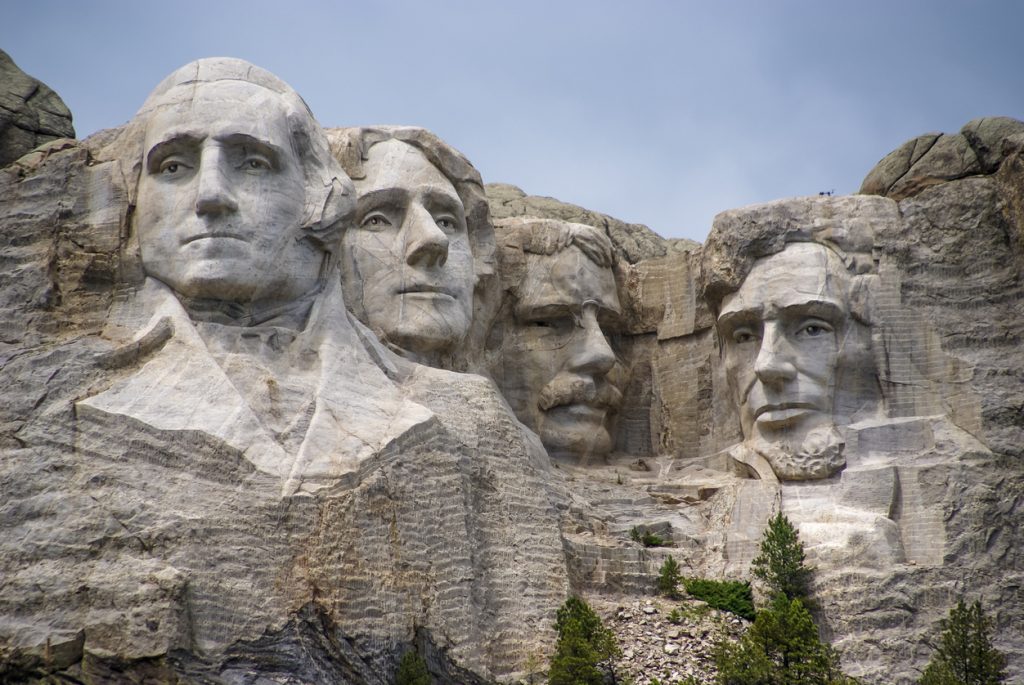When people discover what a huge history geek I am, they usually wrinkle their noses and tell me how boring they think history is. Boring? That was one thing I never understood. History is full of some pretty colorful characters.

To prove my point, I’m highlighting of some of the interesting, unique and just plain strange facts about some of the men who occupied the hallowed halls of the White House. Did you know one of our presidents liked to skinny dip in the Potomac River? Or that another vandalized Shakespeare’s property? Or that one President trained his parrot to swear?
Things Your History Teacher Never Taught You
Thomas Jefferson (1801-1809)
…had a bit of a stealing problem. While visiting William Shakespeare’s birthplace in England in 1786, he and John Adams cut off a piece of Shakespeare’s chair to take home as a souvenir. Later, while in France, Jefferson smuggled rice out of the country by stuffing his pockets.
James Madison (1809-1817)
…our smallest president, Madison stood at 5’4″ and weighed around 100 pounds.
John Quincy Adams (1825-1829)
….was known for skinny dipping in the Potomac River every morning. A reporter took advantage of this information and sat on his clothes until the president would grant him an interview.
Andrew Jackson (1829-1837)
…taught his pet parrot to swear. It was all fun and games, until the parrot had to allegedly be removed from Jackson’s funeral because it wouldn’t stop cursing.
Andrew Johnson (1865-1869)
…was an indentured servant to a tailor. While in the White House, Johnson preferred to make made his own suits.
James A. Garfield (1881)
…was ambidextrous and could write in Greek with one hand and in Latin with the other—at the same time!
Grover Cleveland (1885-1889)
…became the legal guardian to his friend’s 11-year-old orphaned daughter. Ten years later, they were married at the White House, making her the youngest First Lady ever at the age of 21. I’m a big fan of the Happily-Ever-After but that’s just plain creepy.
Benjamin Harrison (1889-1893)
…had electric lighting installed in the White House. He was so scared of being electrocuted that he refused to touch the light switches and was known to go to bed with all the lights on.
William McKinley (1897-1901)
…considered carnations his good luck charm and wore them everywhere. On September 6, 1901, his luck ran out when he gave a little girl the carnation from his lapel and was shot by an assassin a short time later. He died the following week.
Franklin D. Roosevelt (1933-1945)
…was triskaidekaphobic (try saying that three times real fast). Terrified of the number 13, FDR and refused to have dinner with 13 guests or leave for a trip on the 13th of any month.

Theodore Roosevelt (1901-1909)
…had a toy named after him following a 1902 hunting trip when friends clubbed a black bear and tied it to a tree. Roosevelt declined to kill the bear stating it was unsportsmanlike. When the Washington Post printed a cartoon depicting the event, a toy maker created “Teddy Bears” in his honor.
Harry S Truman (1945-1953)
…doesn’t have a middle name. His parents chose the initial because they had a lot of relatives whose names started with that letter.
Gerald R. Ford (1974-1977)
…is the only president to never be elected by the American people. He was appointed to the vice-presidency when Spiro Agnew resigned and then later ascended to the presidency upon Nixon’s resignation. Talk about being in the right place at the right time.
 Ronald Reagan (1981-1989)
Ronald Reagan (1981-1989)
…loved jelly beans so much that he had a standing order of 720 (yes, you read that right–seven-hundred twenty) bags be delivered to the White House each month. Reagan shared his favorite candy with colleagues and visitors. Jelly Belly created a blueberry-flavored jelly bean just for him so he could have jars full of red, white, and blue beans.
Bill Clinton (1993-2001)
…has two Grammy Awards, one for spoken word and one for audiobook projects.
George W. Bush (2001-2009)
…was his high school’s head cheerleader.
Barack Obama (2009-2017)
…had a pet ape called Tata when he lived in Indonesia.
Hopefully you now agree, behind every page in the history textbook lurks interesting and strange facts you never learned in school.



















